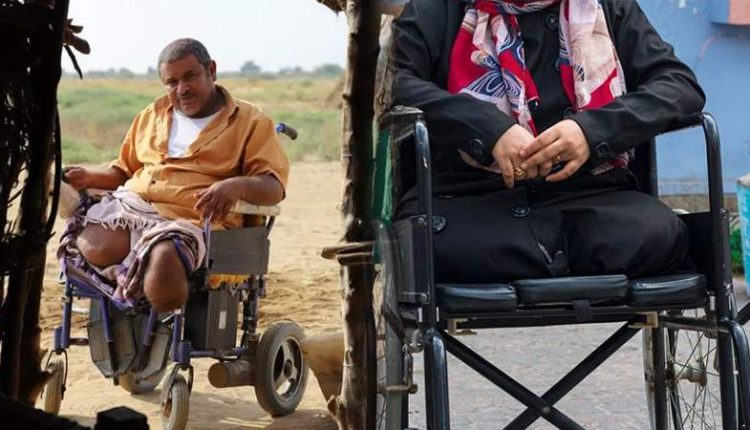Rights Group: US-Saudi Aggression Causes Disabilities for 5 Million People in Yemen
On the International Day of Persons with Disabilities, the Entisaf Organization for the Rights of Women and Children revealed that 15 percent of Yemen’s population suffers from disabilities, with 4.9 million affected due to the ongoing US-Saudi aggression.
The organization emphasized that the actual numbers are likely higher due to landmines and unexploded ordnance scattered across the country.
The aggression has disproportionately harmed people with disabilities by destroying essential infrastructure, including hospitals, severely limiting access to healthcare and humanitarian aid.
Entisaf explained that there are more than 16,000 cases of women, children in need of physical rehabilitation, while over 460,500 individuals require mobility aids, and over 153,500 people need prosthetic limbs or orthopedic devices.
It pointed out that more than two million disabled individuals have not received any healthcare or social services since the beginning of the aggression, and over four million disabled individuals need access to and the use of rehabilitation services.
It pointed out that 90 percent of the total number of persons with disabilities live below the poverty line, and 40 percent of the disabled have been deprived of continuous treatment, making them vulnerable to health setbacks due to the unjust blockade on importing medicines and the ban on traveling abroad, despite the critical condition of most cases, which has led to serious complications for many of them.
The blockade has further worsened their plight by restricting medicine imports and banning travel for treatment, leaving many with severe complications.
Additionally, 185–350 centers for the care and rehabilitation of disabled persons have closed due to the aggression, impacting education and support services for over 250,000 disabled students.
The statement also highlighted the rise in amputations caused by airstrikes and landmines, with a UN report noting that 6,000 civilians were disabled in the first year of the aggression alone.
Entisaf held the US-Saudi aggression accountable for these violations and called on the international community to act, urging for immediate cessation of aggression and protection of civilians.
Despite these ongoing war crimes, international bodies have failed to hold the aggressors accountable. Survivors and witnesses repeatedly call on the international community to act and end the aggression, asserting Yemen’s right to sovereignty and justice.
These crimes are part of a nine-year campaign of brutality, with thousands of similar attacks targeting Yemenis, their livelihoods, and their future, all under the shadow of global silence.

